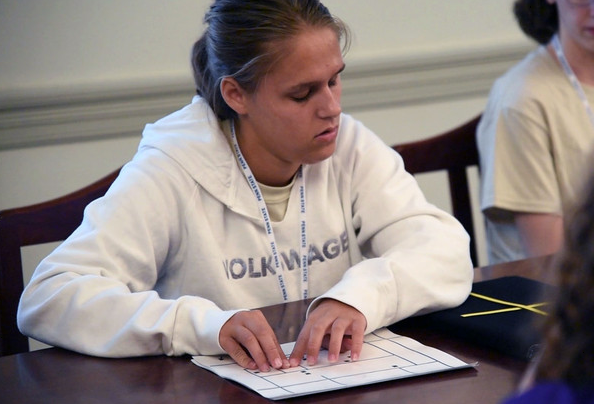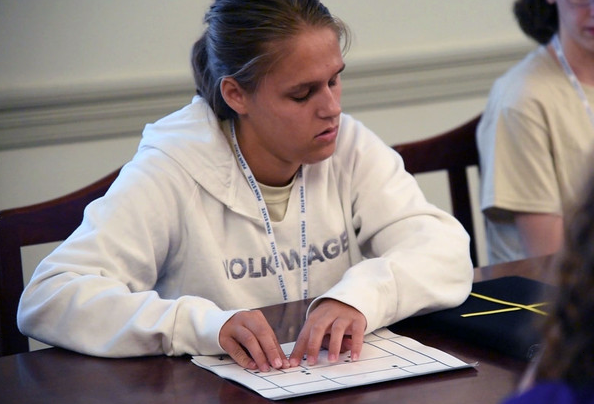BTN.com staff, September 10, 2015
Most people who went to college probably felt overwhelmed to some degree when they arrived on campus for the first time and tried to get their bearings as they sought certain streets, buildings and classrooms.
Just imagine how much more of a challenge that would be if you couldn?t see.
A program held on the Penn State University campus every summer is helping future college students with visual disabilities prepare to take that next big step in their lives. The Summer Academy for the Blind and Visually Impaired is a three-week session that gives about two dozen high school students a taste of campus life before they graduate and head off to college.
?When you have a visual impairment, you have a bit more stress as a freshman,? said Susan Neff, a Summer Academy co-organizer. ?But there also is a social aspect ? how to go to a party, how to make friends, how to get along with people who have not been around people who are blind or visually impaired. For some kids, this is their first time meeting someone else with a visual impairment.?
Co-sponsored by Penn State?s College of Education and College of Health and Human Services, the Summer Academy enjoyed its second-annual session in University Park after five years at Hiram G. Andrews Center, a technical institute in Johnstown, Penn., that provides post-secondary education to people with disabilities.
The switch to Penn State came after organizers decided they wanted to give students a true sense of what navigating a college campus would be like as incoming freshmen. To facilitate that experience, Summer Academy participants live in dormitories. And by the time they get to their graduation ceremony, the students have audited college classes, learned to cook meals in a food lab and traversed campus with the help of canes or assisted technology devices.
 ?If you want to learn what college is all about, it makes sense to do it on a college campus,? said Jim Herbert, a Penn State professor of counselor education and rehabilitation and human services. ?Hopefully, they can gain confidence in their abilities.?
?If you want to learn what college is all about, it makes sense to do it on a college campus,? said Jim Herbert, a Penn State professor of counselor education and rehabilitation and human services. ?Hopefully, they can gain confidence in their abilities.?
But the lessons don?t stop there. Neff said the students participate in team-building activities; go rock climbing and canoeing; take karate lessons; play beep baseball, beep kickball and goal ball (popular sports in the blindness community); and, right before graduation, show off dance moves they?ve learned at a party complete with DJ music.
The Summer Academy?s reputation is spreading. This year?s 24-member class included an out-of-state student for the first time.
?He came from Illinois and he was already in college,? Neff said, ?but the parents were anxious for him to have the experience with us.?
[btn-post-package]Neff said Summer Academy organizers are considering developing a similar program for visually impaired children under 14 and programs for students with other disabilities, such as those who have experienced hearing loss or use a wheelchair.
?Our program has grown by leaps and bounds since were invited to the Penn State campus,? she added. ?The goal is to give [all students] the best preparation to succeed in college.?
By Tony Moton







 See what's coming up live on B1G+ every day of the season at BigTenPlus.com.
See what's coming up live on B1G+ every day of the season at BigTenPlus.com. 